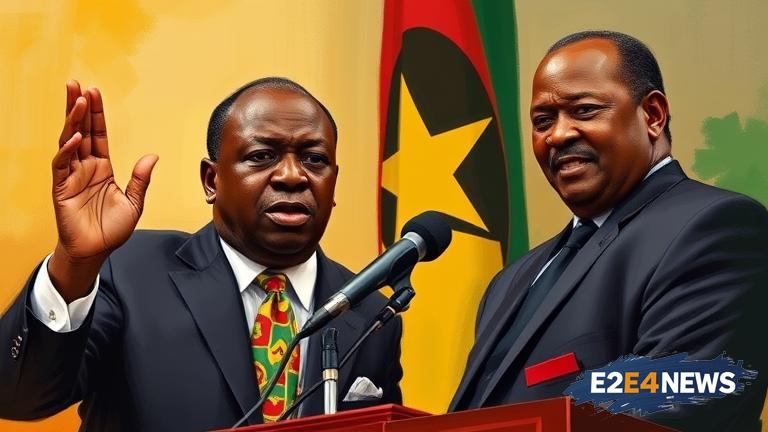In a recent statement, Christopher Mutsvangwa, a prominent figure in Zimbabwe’s political landscape, has raised concerns about Kudakwashe Tagwirei’s readiness to assume a senior leadership role in the ruling ZANU-PF party. Mutsvangwa’s comments have sparked a heated debate about the qualifications and capabilities of potential leaders within the party. Tagwirei, a successful businessman, has been touted as a potential candidate for a senior position, but Mutsvangwa believes he lacks the necessary experience and skills to lead effectively. Mutsvangwa’s criticism is not solely focused on Tagwirei, but rather on the broader issue of leadership succession within ZANU-PF. He argues that the party needs leaders who are well-versed in politics and have a deep understanding of the country’s history and challenges. Mutsvangwa’s comments have been met with mixed reactions, with some supporting his views and others criticizing him for attempting to undermine Tagwirei’s potential candidacy. The debate highlights the ongoing struggles within ZANU-PF to find a suitable successor to President Emmerson Mnangagwa. The party has been grappling with internal power struggles and factionalism, which have raised concerns about its ability to govern effectively. As the country prepares for future elections, the leadership debate within ZANU-PF is likely to intensify. Mutsvangwa’s comments have also sparked discussions about the role of business leaders in politics and whether they have the necessary expertise to lead the country. Some argue that successful businessmen like Tagwirei can bring valuable skills and experience to the political arena, while others believe that politics requires a unique set of skills and knowledge that cannot be learned through business alone. The debate is also reflective of the broader challenges facing Zimbabwe, including economic stagnation, corruption, and political instability. As the country seeks to rebuild and recover, the need for effective and visionary leadership is more pressing than ever. Mutsvangwa’s criticism of Tagwirei’s readiness for senior leadership has highlighted the need for a more nuanced and informed discussion about the qualities and characteristics required of leaders in Zimbabwe. The country’s future depends on its ability to develop a new generation of leaders who are capable of driving economic growth, promoting social justice, and upholding democratic values. Ultimately, the leadership debate within ZANU-PF is a microcosm of the larger challenges facing Zimbabwe, and it remains to be seen how the party will navigate these complexities in the coming months and years.
